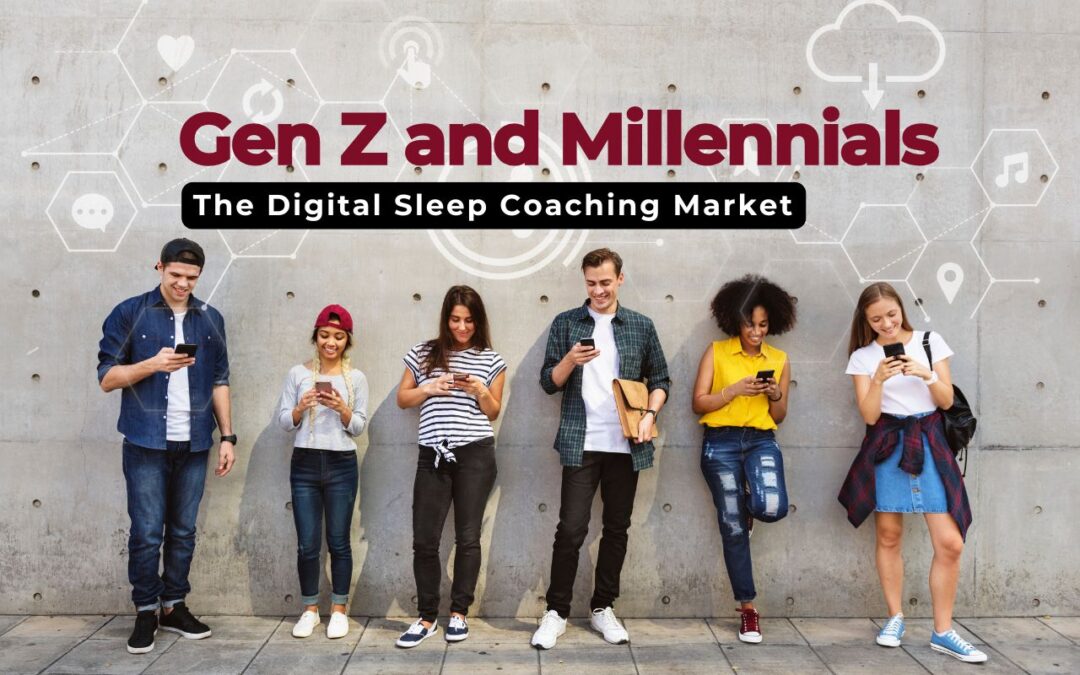With today’s hectic online existence, an increasing number of young individuals are unable to sleep well. Stress, screen time, and aggressive schedules for Gen Z (1997–2012) and Millennials (1981–1996) are such that sleep becomes a problem. Yet these same tech-smart generations are also the ones using digital fixes, and that is where the digital sleep coaching industry is flourishing.
From sleep tracking applications to wise wearables offering real-time sleeping advice, Gen Z and Millennials are leading the charge to a wellness revolution that features healthy sleep as the centerpiece of a healthy lifestyle.
More Than the Rest: Why Sleep Is the Building Block of Well-Being
Resting is not just resting; it’s a vital requirement for your body, which rejuvenates your mind, health, and working ability. Not getting proper sleep has been linked to fear, tiredness, distraction, and even more serious diseases, cause a heart attack.
And with increased consciousness regarding mental health, burnout, and self-care, these generations are now giving more importance than ever before to sleeping.
What Is Digital Sleep Coaching?
Digital sleep coaching employs technology such as apps, wearables, and online platforms to improve individuals’ sleep. It involves:
- More Apps are introduced to track your daily sleeping habits(e.g., Sleep Cycle, Calm, Headspace)
- Wearables such as Fitbit, Apple Watch, and Oura Ring track their sleep patterns
- AI-driven coaching platforms make suggestions based on your sleep logs
- Telehealth sessions with sleep specialists
These devices give the individual his/her personalized advice to improve sleeping habits, all from their phone or a smartwatch.
Why Gen Z and Millennials Are Turning to Digital Sleep Coaching
1. They Trust Technology
They learned to trust technology at a very young age. They’re comfortable with apps controlling everything from exercise routines to money, so a sleeping aid through technology is the next step in evolution.
2. They Have Difficulty Sleeping
Based on studies, Gen Z is also the sleepiest generation. End-to-end screen time, school stress, and social media are all affecting their sleep. Most Millennials, who have work and children to contend with, also have poor-quality sleep.
3. They Prefer Personalized Wellness
Goodbye one-size-fits-all. Gen Z and Millennials mostly prefer science-driven and personalized advice. Digital sleep coaching provides just that—personalized advice based on actual data.
4. They Care About Mental Health
These generations scream loud and clear about stress, anxiety, and burnout. And because sleep is so closely related to mental health, spending money on better sleep is self-care.
Market Growth: Why the Industry Is Exploding
The sleep coaching industry is expanding with online businesses at a fast pace. It reached more than $10 billion worldwide in 2024 and is anticipated to double by 2030. Why is it one of the most important reasons? Younger user demand.
Increasingly, users are looking online for:
- “Gen Z sleep deprivation”
- “How social media impacts sleep”
- “Student sleep apps”
- “Computer sleep solutions for anxiety”
Entrepreneurs are also recognizing and developing solutions that are mobile-friendly, cost-effective, and simple for use.
Top Solutions Available
Some of the top solutions leading the trend are as follows:
- Calm – Offers meditations, sleep stories, and breathing exercises
Sleepio –An effective, evidence-based treatment for insomnia that uses cognitive behavioural therapy (CBT).
- Goodbye one-size-fits-all. Gen Z and Millennials like science-backed, tailored counsel.
Fitbit & Oura – Wear tracking sleep stages and providing health insights
- Rise & Hatch Rest – Apps that specialize in circadian rhythm and melatonin balance
Trends to Watch
As the market expands, these are some trends that will define its future:
- AI-Powered Personalisation: Apps are getting intelligent, employing your sleep information to provide customised routines
- Integrated Telehealth: More platforms now offer sleep consultations with experts
- Mental Health Focus: Sleep apps are introducing features to address anxiety and depression
- Wearables Integration: Smart rings, watches, and even smart pillows are becoming mainstream
- Social Sharing: Gen Z consumers would like to track, contrast, and share improvement, making sleep a lifestyle goal
Final Thoughts
Millennials and Gen Z are the sleepiest, but also in being the most hungry to do something about it. By adopting digital sleep coaching, they’re taking back their wellness in a progressive and data-driven manner. It is no longer a trend—it is a movement, and for health and wellness businesses, understanding this shift is imminent can reap gigantic rewards in the years ahead. So, startup entrepreneur, health coach, or simply a zealot for a great night’s sleep, wake up and listen. Because the future of sleep is digital, and it’s mobile with Gen Z and Millennials at the helm.












